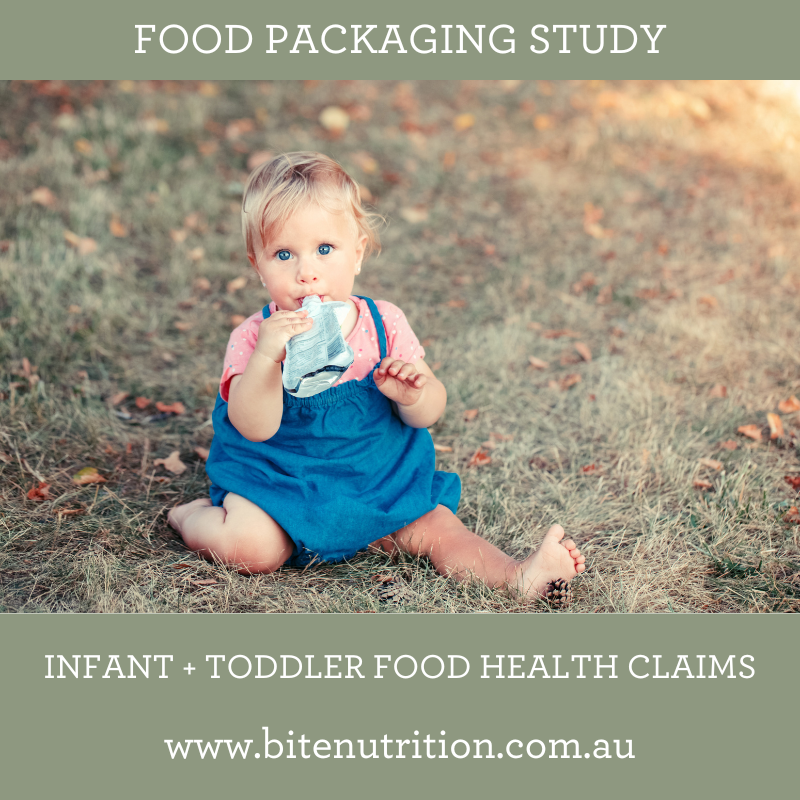INFANT AND TODDLER FOOD HEALTH MARKETING STUDY

We all have the best intentions when it comes to feeding our children and giving them a healthy balanced diet. There will always be a balance of convenience in our food selection and packaged foods are a reality for many on a daily basis.
Unfortunately, however, there is no comprehensive regulation of claims that manufacturers can make on food packaging.
This latest Australian study of 230 infant and toddler foods is a reminder of how the freedom manufacturers have on persuasive marketing continues to impact our national health statistics.
If we had regulation that married the modern times we live in, surely our health would be on the improve right? We are smarter in so many ways, evolving in technology at a speed never seen, yet our health statistics are worse than they have ever been.
What is regulated?
Much like our story on the Health Star Rating, many claims around the health of a food on packaging are SELF REGULATED by the very businesses that benefits from the sale of the product, the manufacturer. In no other industry would this pass the pub test. Yet when it comes to food and health, the one thing that we all strive to keep at an all-time high, there is no regulation.
The regulation around baby formulas up to 12 months are quite strict and vitamin and mineral claims are also regulated. However claims around convenience and taste, particular ingredients (re prebiotics, preservative-free), and the use of terms such as ‘goodness’ or ’natural’ are all unregulated and used at the discretion of manufacturers.
Natural as an example can be cane sugar and concentrated fruit purees.
This study as an example demonstrated that 59% of food pouches advertised "no added sugars" despite containing free sugars.
Pouches
The claims of convenience and the benefits of pouches to help with "self-feeding" continue, despite the mountain of evidence that pouches delay oral motor skills, due to the dependance on puree foods/textures.
Pouches are also often sweet hence increasing the child's preference to sweet foods leading to later dental issues. Interestingly, a very new study also has shown that infants who have pouches 5 or more times a week also display more food fussiness and selectivity.
What can you do?
- The first step is to be aware and cautious. We make assumptions around health claims being regulated, however now we know this is not true. When a package says, "no artificial colouring" but is bright orange - we need to put on our smarts.
- Ideally, we can reduce the use of single serve packaging and ultra-processed foods from our children's diets, as packaged food only really contains synthetic nutrition if it makes any nutritional claims at all. Food closer to nature with minimal processing is best.
- Support groups that are lobbying for more transparency, honesty and regulation around packaging and advertising, specifically as it relates to food promoted to children.

